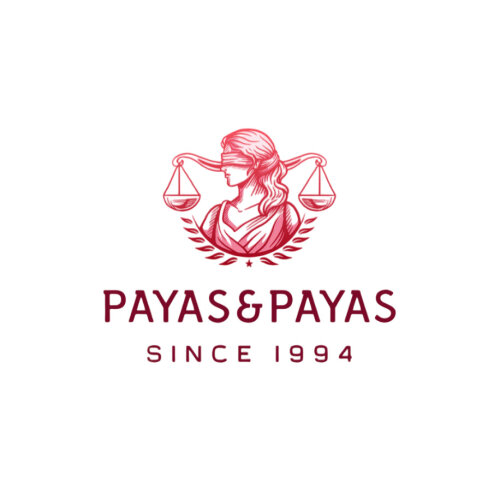Best Labor Law Lawyers in Turkey
Share your needs with us, get contacted by law firms.
Free. Takes 2 min.
Or refine your search by selecting a city:
List of the best lawyers in Turkey
About Labor Law in Turkey
Labor Law in Turkey is a complex and comprehensive field that governs the relationships between employers and employees. It is designed to protect the rights of workers, ensuring fair treatment, good working conditions, and protection against unjust dismissal. The primary legislation in this field is the Labor Act No. 4857, which covers various aspects including employment contracts, working hours, wages, holidays, maternity leave, and health and safety regulations.
Why You May Need a Lawyer
There are numerous situations where individuals might find it beneficial or necessary to seek legal advice in the field of Labor Law in Turkey. Common scenarios include disputes over working conditions, wrongful termination, issues related to wages and benefits, discrimination or harassment in the workplace, and interpretation of employment contracts. Lawyers who specialize in Labor Law can provide guidance and representation to ensure your rights are protected and help resolve conflicts efficiently.
Local Laws Overview
The key aspects of Labor Law in Turkey include the regulation of employment contracts, protection against discrimination, provisions for collective labor agreements, stipulations for employee safety and health, and defined procedures for dispute resolution. The law mandates a maximum of 45 working hours per week, grants annual paid leave, and includes comprehensive rules on overtime pay. In addition, the Turkish Labor Law enforces strict rules against child labor and outlines strong protections for maternity rights, including maternity leave and job security.
Frequently Asked Questions
What are the main laws governing labor in Turkey?
The primary legislation is the Labor Act No. 4857, along with other related laws like the Trade Unions Act, Social Insurance and General Health Insurance Act, and the Employment Act.
What is the standard work week in Turkey?
The standard work week in Turkey is 45 hours, typically divided into six working days unless otherwise stipulated by contract or collective agreement.
How is overtime regulated?
Overtime work must not exceed 270 hours in a year. Workers are entitled to a higher pay rate for overtime hours, generally at 1.5 times the regular hourly wage.
What rights do employees have regarding wrongful termination?
Employees who believe they have been wrongfully terminated may file a lawsuit for reinstatement or compensation within one month of receiving their termination notice.
How are annual leaves determined in Turkey?
Employees with at least one year of service are entitled to paid annual leave, ranging from 14 to 26 days, depending on their length of employment.
What protections exist for pregnant employees?
Pregnant employees are entitled to 16 weeks of paid maternity leave and may not be dismissed due to pregnancy or childbirth.
Are there laws protecting against workplace harassment and discrimination?
Yes, Turkish Labor Law prohibits discrimination and harassment in the workplace, and victims have the right to seek legal recourse.
Can employees join trade unions?
Yes, employees have the right to form and join trade unions, and participate in collective bargaining activities.
What are an employer's obligations regarding workplace safety?
Employers must provide a safe working environment, adhering to regulations under the Occupational Health and Safety Act, including regular safety training and risk assessments.
What steps can be taken if the employment contract terms are violated?
Employees can first seek resolution through dialogue with employers, and if unsuccessful, they may file a complaint with the labor courts or relevant authorities.
Additional Resources
Here are a few valuable resources for those seeking more information or assistance with Labor Law in Turkey:
- Ministry of Labor and Social Security
- Turkish Trade Union Confederation (Türk-İş)
- International Labor Organization (ILO) Turkey Office
- Local Bar Associations
- Social Security Institution (SGK)
Next Steps
If you require legal assistance with Labor Law issues in Turkey, consider taking the following steps:
- Document your issue thoroughly, maintaining records of all relevant communications, contracts, and documentation.
- Consult with a Labor Law attorney to discuss your situation and get a professional evaluation of your case.
- Consider alternative dispute resolution methods such as mediation before pursuing court action.
- Contact your local bar association for referrals to qualified Labor Law attorneys if needed.
- Keep informed about your rights and obligations as outlined in your employment contract and by Turkish Labor Law statutes.
Lawzana helps you find the best lawyers and law firms in Turkey through a curated and pre-screened list of qualified legal professionals. Our platform offers rankings and detailed profiles of attorneys and law firms, allowing you to compare based on practice areas, including Labor Law, experience, and client feedback.
Each profile includes a description of the firm's areas of practice, client reviews, team members and partners, year of establishment, spoken languages, office locations, contact information, social media presence, and any published articles or resources. Most firms on our platform speak English and are experienced in both local and international legal matters.
Get a quote from top-rated law firms in Turkey — quickly, securely, and without unnecessary hassle.
Disclaimer:
The information provided on this page is for general informational purposes only and does not constitute legal advice. While we strive to ensure the accuracy and relevance of the content, legal information may change over time, and interpretations of the law can vary. You should always consult with a qualified legal professional for advice specific to your situation.
We disclaim all liability for actions taken or not taken based on the content of this page. If you believe any information is incorrect or outdated, please contact us, and we will review and update it where appropriate.
Browse labor law law firms by city in Turkey
Refine your search by selecting a city.















